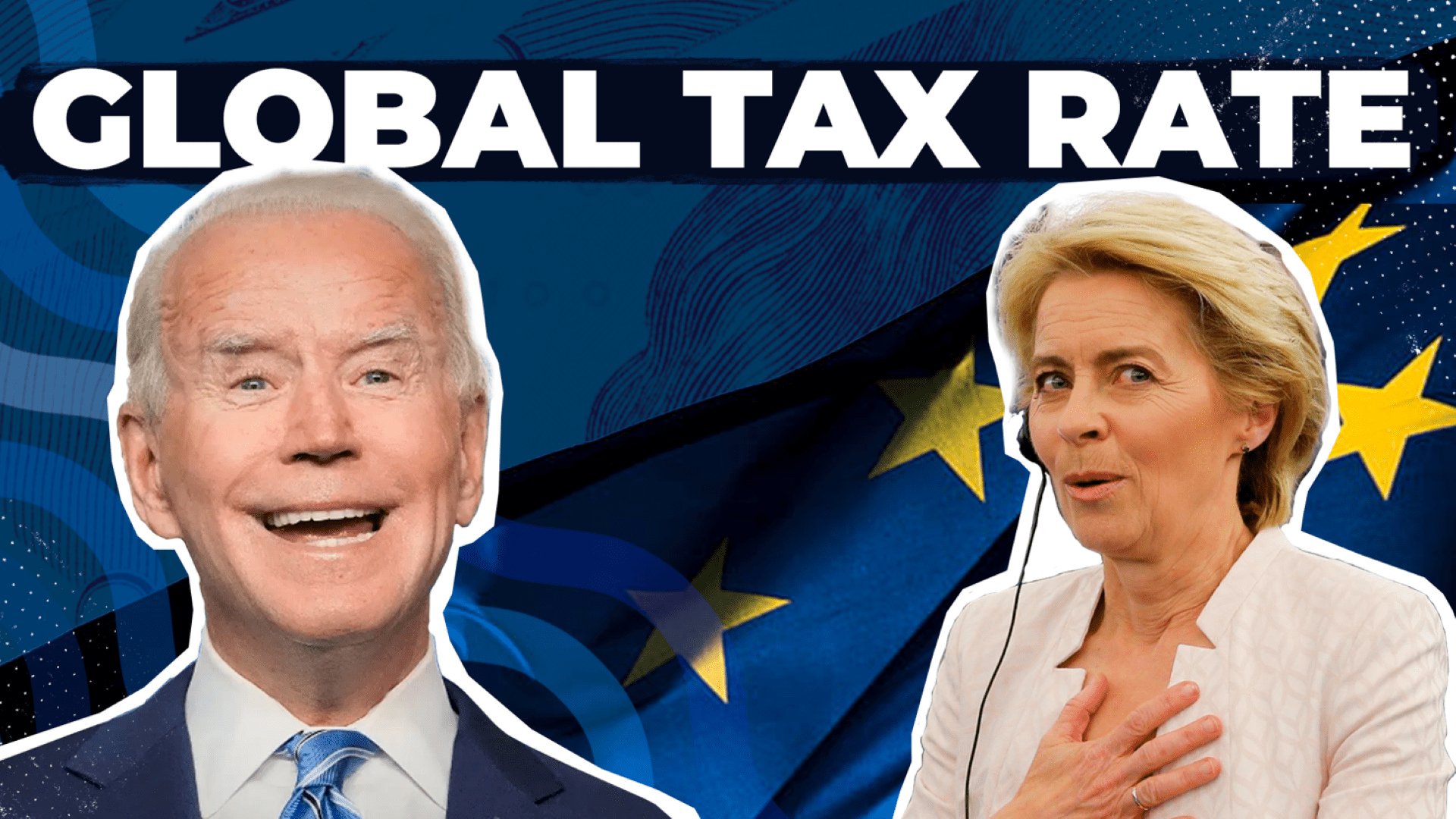In June 2021, G7 finance ministers agreed to a plan for major global tax reforms that would include a push to implement a global minimum tax rate. It subsequently received the backing of the G20 and is expected to be agreed upon by a majority of governments.
However, a global minimum tax rate is a terrible idea that will hurt global trade and restrict competition. While promoted as primarily targeting major multinational corporations seeking to shift their profits and avoid higher taxes, these same corporations are set to be the least impacted by the changes, to the extent that most major corporations are fully supportive of the plan.
Corporate tax rates can vary significantly between jurisdictions. However, the global average has trended somewhat downwards in recent decades, largely due to competition from smaller countries seeking to attract foreign investment.
Essentially, proponents of a global minimum tax rate want to see companies “pay their fair share of tax” in the countries where they operate, rather than the typically low-tax countries where they set up their headquarters. Yet, with the prospect of a taxation cartel determined to eliminate tax competition, those who stand to lose the most are consumers, workers, and small businesses.
Who stands to gain from a global minimum tax rate?
While the trend of lowering tax rates is good for both producers and consumers, proponents of a global minimum tax rate believe that the “race to the bottom,” as they call competitive tax rates, must be stopped. Their reason for this? Simply put, governments of larger economies need to secure increased tax revenue in order to massively increase public spending.
Since raising corporate tax rates domestically would further encourage major companies to relocate to low-tax countries, governments seek to stamp out global competition in order to maximize their tax revenue. Under pressure from the G20, the global minimum tax rate would see governments around the world commit to setting a corporate tax rate of 15% or higher by as early as 2023.
While the initiative enjoys the backing of governments who already set comparatively high corporate tax rates, as well as the IMF, it has rightfully faced significant criticism from smaller countries who rely on their competitive tax rates to attract foreign investment.
Agreeing to demands for a minimum corporate tax rate would be extremely damaging for countries that have used competitive tax rates to their advantage. For example, much of Ireland’s economic development in recent decades has been a result of securing foreign investment through its 12.5 percent corporate tax rate, which is significantly below average.
Understandably, the Irish government opposes the plan which would essentially hinder the ability to offset the disadvantages of being a small country. Indeed, all of the European nations whose tax rates are deemed too competitive by the G7 are relatively small countries, such as Cyprus, Hungary, Bulgaria, and Montenegro.
Essentially, those who stand to gain from a global minimum tax rate, the larger economies, are intent on bullying smaller countries into doing away with one of the few competitive advantages they have.
Meanwhile, the largest companies, those often reviled for not “paying their fair share” of taxes, are actually supportive of the plan. One attractive aspect of the plan for these companies is a provision to remove a digital services tax in the European Union, although this could of course be done separately regardless of the G7’s proposals.
The costs associated with a global minimum tax rate would be devastating for smaller businesses, but would not be anywhere near as troubling for large corporations who can impose the extra costs on their larger consumer bases.
A global minimum tax rate is anti-competitive
By its very nature, the planned global minimum tax rate is fiercely hostile to competition. While its proponents talk about a global minimum tax rate being used to ensure a “more level playing field,” what this really means is a less competitive playing field, rigged in favor of governments in large, prosperous economies to help fund reckless spending sprees.
One reason why the U.S. is leading the conversation is because the Biden administration views a global minimum tax rate as a convenient tool to mitigate the fallout of increasing the corporate tax rate from 21 to 28 percent. President Biden sees this as an opportunity to procure additional funding for a series of costly government programs and infrastructure projects.
A Treasury Department report on Biden’s Made in America Tax Plan showed that seven of the top 10 locations for U.S. multinational profit in 2018 were countries that apply much lower taxes. As such, a significant tax increase would further hinder the competitiveness of American companies. That is, according to proponents of a global minimum tax rate, unless other countries can be pressured into raising their tax rates as well.
In Europe, the governments of large economies such as France and Germany are particularly supportive as their corporate tax rates are also uncompetitive. Germany’s current rate of 30 percent is the second highest in Europe, and even after a planned decrease to 25 percent in 2022, France’s corporate tax rate will remain well above the E.U. average.
The European Union’s frustration with low-tax member states such as Ireland or Hungary is that companies based in those countries have access to the entire single market without being subject to the same tax burden of companies in the bloc’s more dominant economies. Unhappy with tax competition, the E.U. has long sought to harmonize corporate tax rates across its member states, but these efforts have been unsuccessful due to the obvious opposition from countries that would lose out.
While there may be some logistical hurdles, for the largest multinational corporations, global tax reform represents an opportunity to solidify their position by driving up operational costs for any smaller competitors.
Stifling competition is a terrible idea
The force of tax competition is extremely valuable. Competition helps to drive out rent-seekers in business and government, reduces costs for producers and consumers, and provides a check on government power. The global minimum tax rate can be described as putting a floor on the cost of government.
Contrary to widespread misconceptions, creating a new cartel of powerful countries set on restricting competition and maintaining high prices will help multinational companies at the expense of small businesses and hurt workers and consumers around the world.
To find out more about the implications around the planned global minimum tax rate, be sure to check out our Learn Liberty video below.
This piece solely expresses the opinion of the author and not necessarily the organization as a whole. Students For Liberty is committed to facilitating a broad dialogue for liberty, representing a variety of opinions. If you’re a student interested in presenting your perspective on this blog, send your piece to [email protected], and mention SFL Blog in the email subject line for your chance to be published and be seen!









